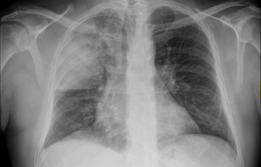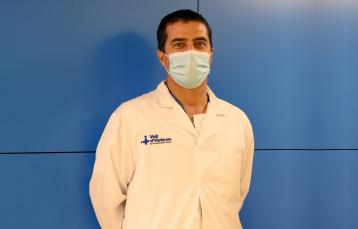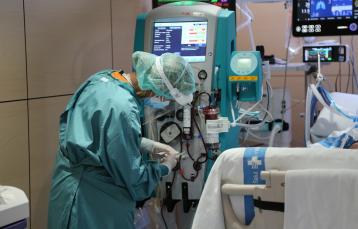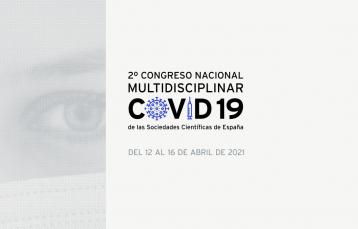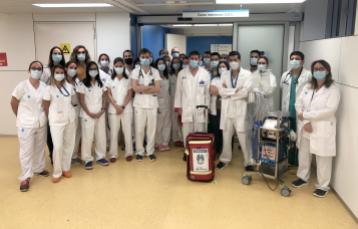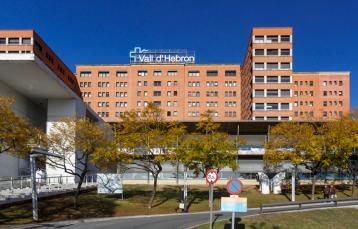Intensive Care Medicine
Description
Intensive Care Medicine residents mainly carry out their rotation in the General Intensive Care Unit, followed by the Specialist Intensive Care Units and other medical specialisations second and third respectively.
Residents’ everyday healthcare activity in intensive care medicine consists of being a constant presence during shifts on the Intensive Care Unit throughout the entire residency.
This means that in their first rotation doctors become familiar with critical medicine and are equipped to detect problems in critically ill patients and perform physical examinations. In addition, they get to know the patient management computer system for admissions and discharge assessments.
From a technical point of view, they learn the basics of mechanical ventilation, pharmacology and specifically vasoactive drugs and antibiotic therapy, anamnesis and taking medical histories, punctures and fitting catheters using the Seldinger technique.
While on duty, specific work includes progressively learning how to manage problems as well as attending to interconsultations. Besides this, residents are on the cardiac arrest paging system as part of this round-the-clock rotating task.
During the fourth and fifth year rotation, doctors assimilate more effective diagnostic and therapeutic abilities, enabling them to more easily assess and differentiate the level of severity of each patient’s condition. The presentation of sessions, oral papers and participation in sessions, courses and congresses related to the specialisation are of particular note in this final phase.
Whilst residents work under the tutelage of a supervising physician in their fourth year, they gain more autonomy in their final year, but are still supported by a leading specialist who acts as a consultant, supervising clinical management and authorising discharges.
We are a teaching unit with diverse lines of research which include the Respiratory, Sepsis, Haemodynamics, Infections, Neurology and Nephrology research groups. These groups play an active role in unit protocols and different intensive and critical care medicine associations.
From a research perspective, residents are recommended to attend one of the Research methods courses given and are also helped to get involved in the intensive care medicine lines of research.
Preparing papers to present at specialist congresses and writing articles for influential journals in the sector is also encouraged.
Accredited places: 3
Download the Unit training programme
Why specialise at Vall d’Hebron?
- Because at a national level we encourage attendance at Ventibarna and Cardiopulmonary resuscitation (CPR) courses at the hospital or those aimed at the general public coordinated by the Intensive Care Medicine Department.
- Because we expect residents to attend sessions on continuous professional development, clinical cases, neurocritical cases, and a monthly session on pathological anatomy, and mortality reviews.
- Because we also offer specific courses for residents on advanced CPR and transcranial Doppler ultrasound.
- Because we recommend that doctors get involved in monthly meetings on critical issues, and the annual educational conferences from the Catalan Society of Intensive Care Medicine (SOCMIC).
- Because we prioritise residents’ attendance at Catalan, Spanish and European congresses, and encourage them to present papers.
- Because we provide support when seeking a line of work for a future doctoral thesis.
- Because we enable attendance at the International Symposium on Intensive Care in Brussels.











